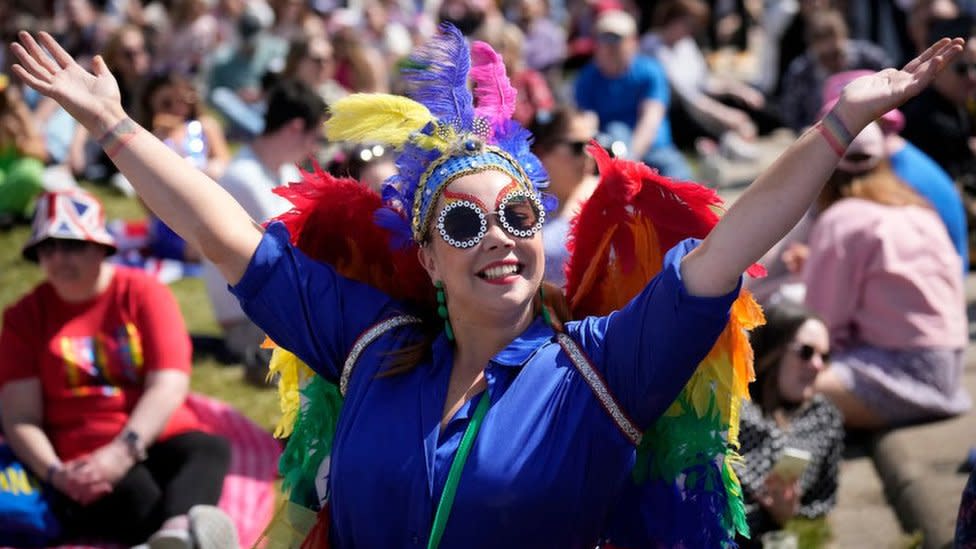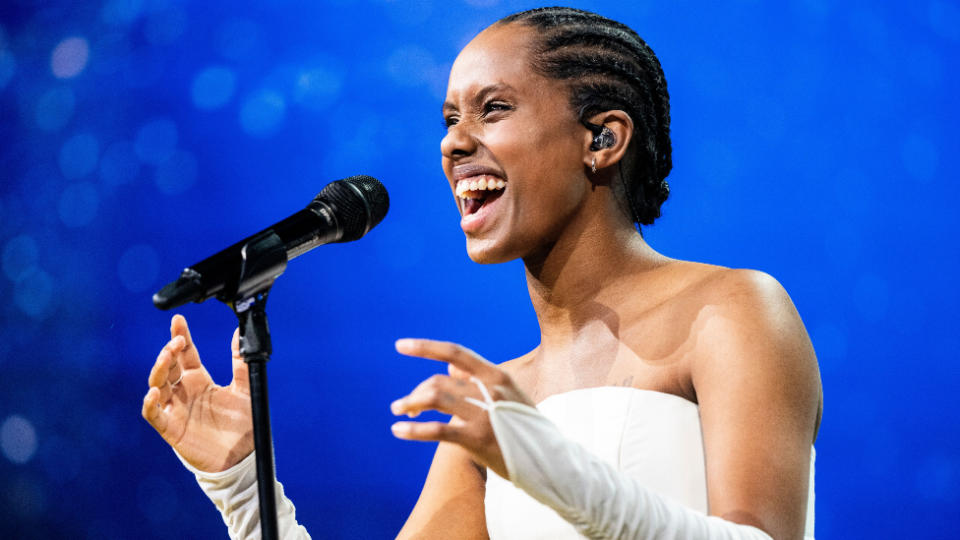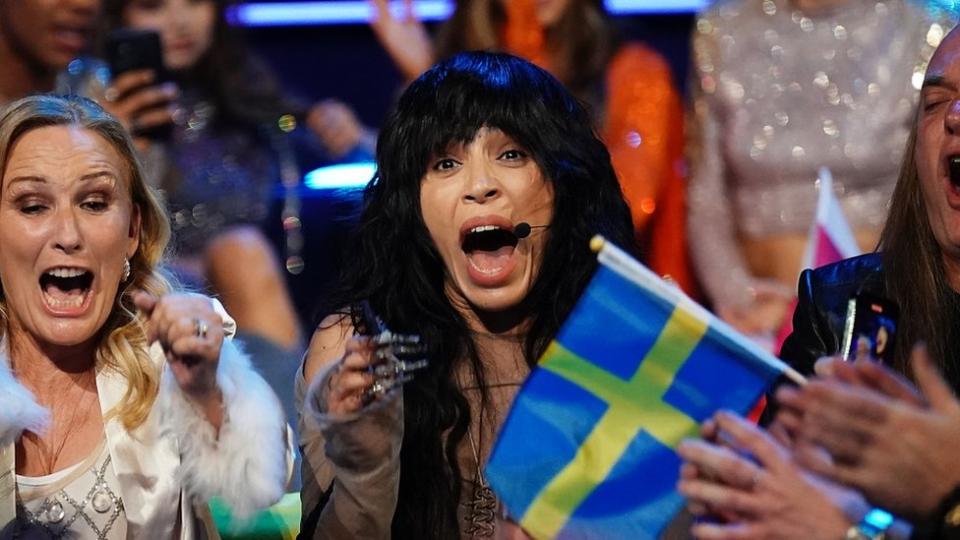What is Eurovision, and where and when is the 2024 final taking place?

A year after Eurovision fans descended on Liverpool for a hugely successful event hosted on behalf of Ukraine, the annual song contest is heading to Sweden.
Singer Olly Alexander is representing the UK.
Israel's participation has been criticised and the country had to revise its original entry, which breached political-neutrality rules.
What is the Eurovision Song Contest and which countries take part?
The Eurovision Song Contest is an annual televised song writing competition which is organised by The European Broadcasting Union (EBU).
The 2024 contest features 37 performers chosen by EBU member broadcasters to represent their country.
Songs must be original and no more than three minutes long.
Lead vocals must be performed live, and a maximum of six singers and dancers can be on stage during the performance.

Most Eurovision countries are European. But Australia takes part every year after being invited to send an act to the 2015 contest for Eurovision's 60th anniversary celebrations.
However, Australia cannot host. If it ever won, it would have to nominate a European nation to stage the contest on its behalf.
Other non-European countries including Israel are allowed to participate because they are members of the EBU.
Where is the 2024 Eurovision Song Contest taking place?
The 2024 contest is being held in Sweden after Loreen won in 2023 with her song Tattoo.
She became the first woman to win the contest twice, after triumphing in 2012 with Euphoria.

This is the third time Malmo has hosted Eurovision, and the seventh time the contest has been held in Sweden.
As 2024 is the 50th anniversary of Swedish group Abba's first Eurovision win with Waterloo, there had been speculation about the band's potential involvement.
But Abba members Bjorn Ulvaeus and Benny Andersson told the BBC they would neither perform at the final, nor compose Sweden's entry.
When is the 2024 final and how can I watch?
The grand final will be held in the Malmo Arena on Saturday 11 May.
The semi-finals will take place on Tuesday 7 and Thursday 9 May.
Both semi-finals and the grand final will be broadcast live on BBC One and BBC iPlayer.
Who is the UK entrant Olly Alexander and what is his song called?

Pop star Olly Alexander is representing the UK at the 2024 contest, with his song Dizzy.
The former Years and Years frontman is hoping to improve on the UK's disappointing performance in 2023, when Mae Muller came second to last.
Alexander is well-known around Europe for hits including Desire, King and If You're Over Me.
He is also a Bafta-nominated actor, having played the lead role in Channel 4's hard-hitting Aids drama It's A Sin.
Why is Israel's Eurovision entry controversial?
Israel's representative, Eden Golan, will sing a song called Hurricane - a rewritten version of the country's original entry, October Rain, which was thought to reference the 7 October Hamas attacks on Israel.

The lyrics now tell the story of a woman experiencing a personal crisis, according to Israel's public broadcaster, Kan.
Kan initially said it would withdraw from the contest rather than change the lyrics.
But after the organisers barred the song for its political content, the country's President, Isaac Herzog, called for "necessary adjustments" to ensure Israel could compete.
Separately, musicians and organisations from a number of participating countries have called for Israel to be suspended over the war in Gaza.
Iceland's Association of Composers and Lyricists published a statement saying Israel's military action made its participation incompatible with an event "characterised by joy and optimism".
Similar objections have been raised in Finland, Norway, Denmark and Sweden, with many pointing out that Russia has been disqualified since its invasion of Ukraine in 2022.
Alexander has rejected calls to pull out of the contest in protest against Israel's inclusion.
Responding to an open letter from more than 450 LGBTQ artists, individuals and groups, he expressed his wish for peace but said he believed in the unifying power of music.
Eurovision organisers have resisted calls for Israel's exclusion, saying the situations in Ukraine and Gaza are different.
The EBU has also said that abuse and harassment of artists over Israel's participation in the competition is "unacceptable and totally unfair".
How does the voting work?
The semi-finals are decided entirely by a public vote from competing countries and people in the rest of the world.
For the final, every country which qualifies awards two sets of scores: one from a jury of experts and one by fans.
Each of their 10 favourite songs is given points - but they can't vote for their own country's song.
Their favourite act receives 12 points, their second-favourite ten points, their third choice eight points, and then seven points, and so on, down to one point for their tenth favourite.
Eurovision was one of the first televised competitions to let viewers vote.
Fans in Austria, Germany, Sweden, Switzerland and the UK began voting by phone in 1997.
The rest of the world was allowed to vote in 2023, with points given to the 10 most popular songs worldwide.
How much does Eurovision cost?
Each participating broadcaster pays an entrance fee to the EBU. France, Germany, Italy, Spain and UK pay the most, although the BBC does not make its contribution public.
BBC News was told that other countries were asked to pay more after Russia's suspension. Three countries pulled out of the 2023 contest as a result.
It is thought staging the 2023 event in Liverpool cost the BBC between £8m and £17m. The UK government pledged £10m towards operational costs, while local authorities in Liverpool committed £4m.

